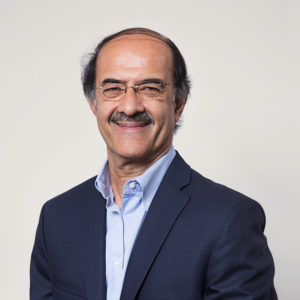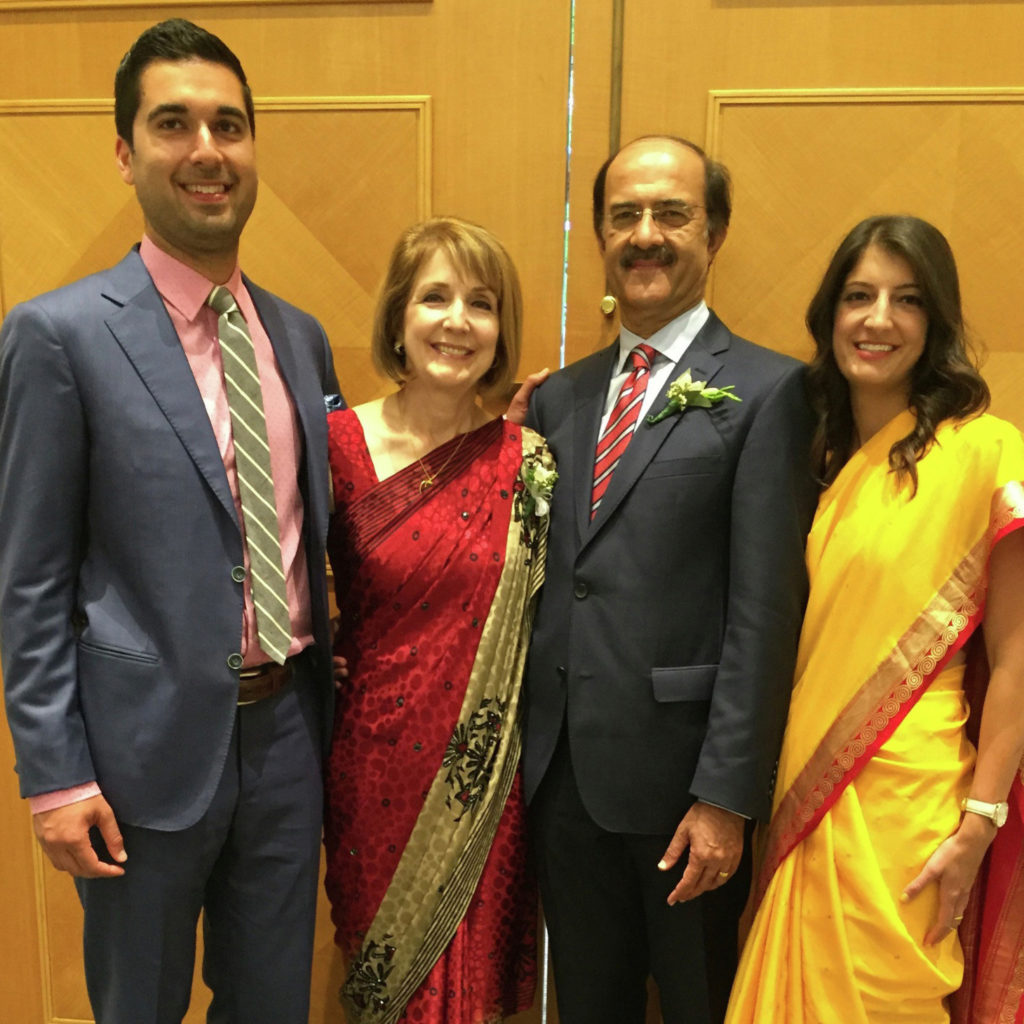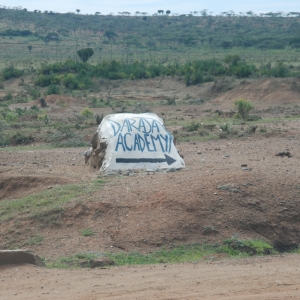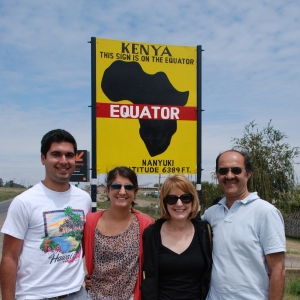 GSB 1980 Classmate Mo Virani has devoted his career to high technology and venture capital. After significant tenures with Hewlett Packard, Sun Microsystems, and Ziff Davis, Mo spent over a decade managing finance and administration for Mohr Davidow Ventures. He is currently the Chief Operating Officer and Chief Financial Officer of Northgate Capital. In addition to his Masters in Business Administration from Stanford, Mo holds a degree in Electrical and Electronic Engineering from the University of Manchester.
GSB 1980 Classmate Mo Virani has devoted his career to high technology and venture capital. After significant tenures with Hewlett Packard, Sun Microsystems, and Ziff Davis, Mo spent over a decade managing finance and administration for Mohr Davidow Ventures. He is currently the Chief Operating Officer and Chief Financial Officer of Northgate Capital. In addition to his Masters in Business Administration from Stanford, Mo holds a degree in Electrical and Electronic Engineering from the University of Manchester.
Mo and his wife Vivienne have long been active in the non-profit world. Here, Mo describes their passion for ventures that educate at-risk girls, and their close involvement with Project Redwood grantee Daraja Academy.
How did your early years in Kenya influence your perspective now?
I had a very warm and joyous upbringing in Kenya. I went to nursery school, primary school and secondary school in Kenya, 15 years in all before getting on a plane for the first time in my life to head to the University of Manchester, a cold dreary place about as far removed from the warmth and color of Africa as you can get! The only consolation of being in Manchester and, funnily enough, the motivation to go there was that I could see my beloved soccer team Manchester United play at their Old Trafford home!
But back to my upbringing and how it informed my world view. I grew up with a multiple set of communities, both Indian and African, and learned how to appreciate diversity and also to respect the differences amongst those communities. English was my third language after my native tongue Gujerati, and then Kiswahili, the East African language. It was a peaceful, harmonious existence as long as you respected the unspoken boundaries that the communities had and that you sometimes learned about the hard way! Nevertheless, that wasn’t difficult, and it was a caring, nurturing and tolerant environment that I grew up in with exposure to both English, American and Indian culture through television, movies, magazines, books, etc. Hence I emerged with a global view of the world that then got reinforced once I was in England and later in America. To this day I feel very comfortable in different parts of the world, knowing the geography and culture of the places and doing my best to visit as many of those parts as life will allow! To date, I am at 55 countries and counting!
By the way, one small detail….I grew up in this small town at the time (60,000 population then, 500,000+ now) called Kisumu on the shores of Lake Victoria which has been firmly planted on the world map by President Obama’s dad and grandmother hailing from that part of Kenya!
What’s been the genesis of your involvement in organizations that focus on educating girls in particular?
I grew up in a community that, surprisingly for an Indian Muslim community, had a core belief in girls’ education. In fact we were taught from a very early age that if a family had two children, a boy and a girl, and could only afford to send one of them to school, they should send the girl because of the inter-generational impact that is possible through educating girls. So supporting girls’ education and girls’ and women’s rights in general has been part of my DNA forever.
In addition to Daraja, I serve on the Finance Committee of the Global Fund for Women (GFW) which is headed up by Dr. Musimbi Kanyoro, a fellow Kenyan and friend of our family.
What circumstances led to your involvement with Daraja Academy?
It was a bit of serendipity. The founders of Daraja, Jenni and Jason Doherty, had somehow contacted a teacher at Woodside Priory, whose wife was friends with my wife Vivienne, and she remembered that I was from Kenya (probably the only Kenyan she ever knew!) Anyway, they put Jason in touch with me as he was starting to think about creating Daraja Academy and was looking for people who would support his dream. I was a convert after the first sentence or two!!
What does serving on Daraja’s board entail?
For the first two or three years of Daraja’s existence, I was not on the Board but was a supporter from the outside. I would organize these breakfasts with a fellow believer and invite as many people as possible with the capacity to give. For several years we raised around 25 thousand dollars from the people that attended these breakfasts. A keen early supporter of Daraja from the breakfasts was Russell Pyne, who was in our class as well.
I was then invited to join the Board about six years ago (I am terming out in December), and have served on the Finance and Governance committees of the Board. I have also been a strong fundraiser through participating in Bay to Breakers every year and through the network of supporters that I cultivated early on and then grew over time.
We have visited the school, although we didn’t get to stay on campus. A good excuse for a follow on visit! The school is situated in a beautiful part of Kenya right on the equator and at the foothills of Mount Kenya, a snow covered mountain that is the second highest mountain in Kenya after Mount Kilimanjaro. It is a beautiful setting on sixty acres of usable land, where we hope one day to significantly expand the footprint of the school to perhaps three or four times the current capacity.
What’s been most satisfying about your involvement with Daraja?
I think the most satisfying aspect of working with Daraja is watching the transformation of the girls. They start out as timid creatures who would otherwise not have gone to school but for Daraja, and would have been doing housework or farmwork and likely getting married off at the earliest opportunity. Even after one year at Daraja and certainly by the time they graduate they become these amazingly confident, articulate girls ready to take on the world. I have seen them get up in front of audiences in the United States, and speak with such confidence and with such heart, that you can’t help but want to support them forever!
On a more practical level, I have also been incredibly satisfied in watching the development of the faculty and leadership of the school. Today, the school’s day to day operations are fully run by locals who are amazingly accomplished and who have created incredibly high standards for the operation of the school.
What do you see as the most formidable challenges that lie ahead for Daraja and organizations like it?
Unfortunately it’s the same old story. The financial sustainability of the school is a constant challenge and requires year-round fundraising here in the United States. We are continually looking for ways to make this a little easier (four-year sponsorships, monthly giving, multi-year grants, and so on). We have also started fundraising from local communities in Kenya, although this is an uphill battle because this is not a norm for their society. Nevertheless our staff there has done a really good job of getting the process started and is building a core group of local supporters.
What other non-profit organizations that you are involved with? Are there any organizations that you and wife Vivienne jointly work with?
Vivienne and I have supported a variety of not-for-profit institutions, both domestic and international, since the early 1990s by providing financial support and also participating in a number of boards. We have an annual budget for giving that Vivienne and I agree on at the beginning of every year and lay out the plan quarter by quarter which I then police!
Of the institutions that I have supported, several of them are affiliates of the Aga Khan Development Network, which is the largest private development organization on the world, with 80,000 employees currently. Within this network, we have supported the Aga Khan Education Services, the Institute of Ismaili Studies in London, the Aga Khan Foundation and Focus Humanitarian Assistance, where I was fortunate enough to chair their United States unit for seven years. This latter organization is a disaster management agency that does much work in both the United States and in Central Asia where they have a significant presence on the ground in Tajikistan, a country that was part of the USSR until the Soviet bloc broke up in the late 1980s. It is a country where natural hazards, such as mudslides, avalanches, earthquakes, flooding, and glacial lake overflows are a part of everyday life, and where we spent much time and resource preparing for, preventing, and trying to mitigate the effects of such hazards.
To balance out my international interests, I was also on the Board of the Riekes Center for Humanitarian Assistance in Menlo Park for six years. This is a unique organization started out in the 1970s by an ex-Stanford football player whose football career was terminated prematurely by a serious injury, and who created this organization during his rehabilitation. He wanted to provide a safe place for others who had been injured and who could be honest about the extent of their injuries and about the challenges they were facing. The organization grew to support thousands of people over the years, from middle school students to veterans in the area who were trying to meet personal goals in their lives that revolved around athletic fitness, music and the arts, nature studies, and rehab and recovery from both physical and mental challenges.
Vivienne, for as long as I can remember, has always been busier than I have been! Over the years she has supported a number of causes in addition to the support that she has provided the institutions that I have been involved with. She has been a tireless advocate for homeless youth in San Francisco and supported them for many years through the Board of an organization called SS4K, Street Smart for Kids. At the present moment, she is a Board member of Caminar for Mental Health, an organization based in San Mateo that has provided support services for fifty years to individuals with mental health disorders. She is also involved in supporting multiple other charities.
What are the most important things you and Vivienne have learned from your various non-profit involvements?
I think the thing you learn the most from the organizations that you support is that you end up as much the beneficiary of the involvement as the people you are trying to support. You meet people and experience things that otherwise would never have happened in your life. You get as much as you give, if not more! You also find that most people really want to progress, work hard and make something of themselves and are not looking for hand-outs. They just need help to get going in the right direction.


